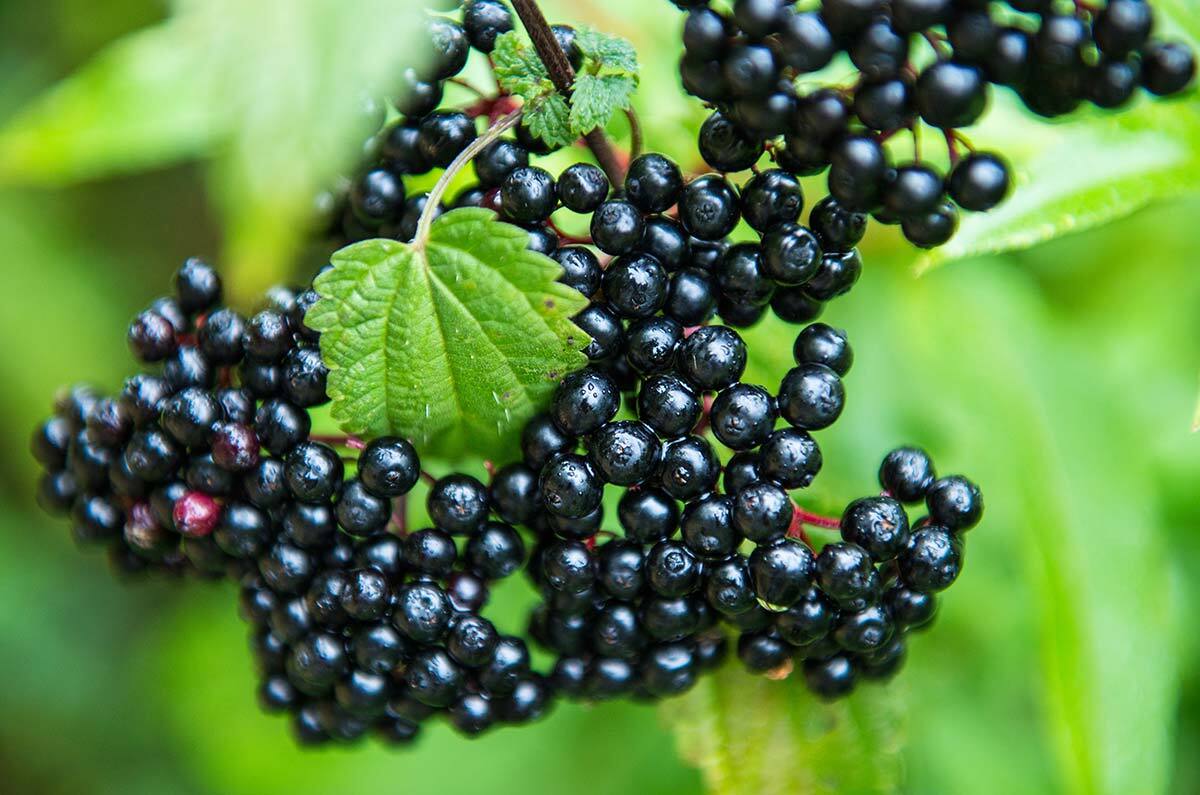
Elderberry has been a part of human history for centuries, known for its medicinal properties and culinary uses. But what makes this small, dark berry so special? Elderberries are packed with antioxidants, vitamins, and minerals that can boost your immune system, fight inflammation, and even improve heart health. Beyond health benefits, elderberries have a rich cultural significance, appearing in folklore and traditional remedies across various cultures. Whether you're curious about its health benefits, historical uses, or how to incorporate it into your diet, this post will provide you with 20 intriguing facts about elderberry. Get ready to dive into the world of this fascinating berry!
Key Takeaways:
- Elderberry is a superfood packed with vitamins and antioxidants, boosting the immune system and offering anti-inflammatory properties. It has a rich history and versatile culinary uses.
- Modern research suggests elderberry may have anti-viral properties, aid in weight loss, and support bone health. It has also made appearances in pop culture and has its own festivals.
What is Elderberry?
Elderberry, a small dark berry, has been used for centuries in traditional medicine. Known for its potential health benefits, this fruit is gaining popularity in modern wellness circles. Let's dive into some fascinating facts about elderberry.
-
Elderberry is a Superfood
Elderberries are packed with vitamins A, B, and C. They also contain antioxidants, which help fight free radicals in the body. -
Boosts Immune System
Consuming elderberry can strengthen the immune system. It’s often used to prevent colds and flu. -
Rich in Nutrients
These berries are a good source of dietary fiber, which aids digestion. They also provide essential minerals like iron, potassium, and phosphorus.
Historical Uses of Elderberry
Elderberry has a rich history of use in various cultures. From ancient times to modern-day, its applications have evolved.
-
Ancient Remedy
Ancient Egyptians used elderberry to improve their complexions and heal burns. This shows its long-standing place in skincare. -
Native American Medicine
Native Americans used elderberry to treat infections. They also made teas from the leaves and flowers for medicinal purposes. -
European Folklore
In European folklore, elderberry was believed to ward off evil spirits. People planted elder trees near their homes for protection.
Health Benefits of Elderberry
Elderberry is not just a tasty fruit; it offers numerous health benefits. Here are some key advantages.
-
Anti-Inflammatory Properties
Elderberry has anti-inflammatory effects, which can help reduce swelling and pain. -
Supports Heart Health
The antioxidants in elderberry can improve heart health by reducing cholesterol levels and improving blood circulation. -
May Improve Skin Health
Elderberry's high vitamin C content helps in collagen production, which is vital for healthy skin.
Culinary Uses of Elderberry
Elderberry is not just for medicinal purposes. It’s also a versatile ingredient in the kitchen.
-
Elderberry Syrup
Elderberry syrup is a popular remedy for colds and flu. It’s also a delicious topping for pancakes and waffles. -
Elderberry Wine
Elderberry wine has been made for centuries. It’s known for its rich flavor and potential health benefits. -
Elderberry Jam
Elderberry jam is a tasty way to enjoy the fruit. It can be spread on toast or used as a filling for pastries.
Interesting Facts About Elderberry
Beyond its health benefits and culinary uses, elderberry has some intriguing aspects worth noting.
-
Elder Trees Can Live Long
Elder trees can live up to 60 years. They are hardy and can grow in various climates. -
Not All Elderberries Are Edible
Only the berries from the Sambucus nigra species are safe to eat. Other varieties can be toxic if not prepared correctly. -
Elderberry Flowers Are Edible
The flowers of the elderberry plant are also edible. They can be used to make teas, syrups, and even fritters.
Elderberry in Modern Medicine
Modern science is beginning to catch up with traditional knowledge about elderberry. Research is ongoing, but findings are promising.
-
Potential Anti-Viral Properties
Studies suggest that elderberry may have anti-viral properties. It could help reduce the severity and duration of viral infections. -
May Aid Weight Loss
Elderberry’s high fiber content can promote feelings of fullness, which may aid in weight loss. -
Supports Bone Health
The calcium and iron in elderberries support bone health. Regular consumption can help maintain strong bones.
Fun Facts About Elderberry
Let’s end with some fun and quirky facts about this amazing berry.
-
Elderberry in Pop Culture
Elderberry has made appearances in pop culture. It’s mentioned in Shakespeare’s plays and even in the Harry Potter series. -
Elderberry Festivals
Some regions celebrate elderberry with annual festivals. These events feature elderberry foods, drinks, and crafts.
The Power of Elderberries
Elderberries pack a punch when it comes to health benefits. Rich in antioxidants, they help fight off free radicals, potentially reducing the risk of chronic diseases. Their anti-inflammatory properties can ease symptoms of colds and flu, making elderberry syrup a popular home remedy. High in vitamin C, these berries boost the immune system, keeping you healthier year-round.
Elderberries also support heart health by improving circulation and reducing cholesterol levels. They’re versatile too—used in teas, jams, wines, and even skincare products. However, remember that raw elderberries can be toxic, so always cook them before consumption.
Incorporating elderberries into your diet can be a tasty way to enhance your well-being. Whether you’re sipping on elderberry tea or enjoying a spoonful of syrup, these little berries offer big benefits. So, why not give elderberries a try?
Frequently Asked Questions
Was this page helpful?
Our commitment to delivering trustworthy and engaging content is at the heart of what we do. Each fact on our site is contributed by real users like you, bringing a wealth of diverse insights and information. To ensure the highest standards of accuracy and reliability, our dedicated editors meticulously review each submission. This process guarantees that the facts we share are not only fascinating but also credible. Trust in our commitment to quality and authenticity as you explore and learn with us.


